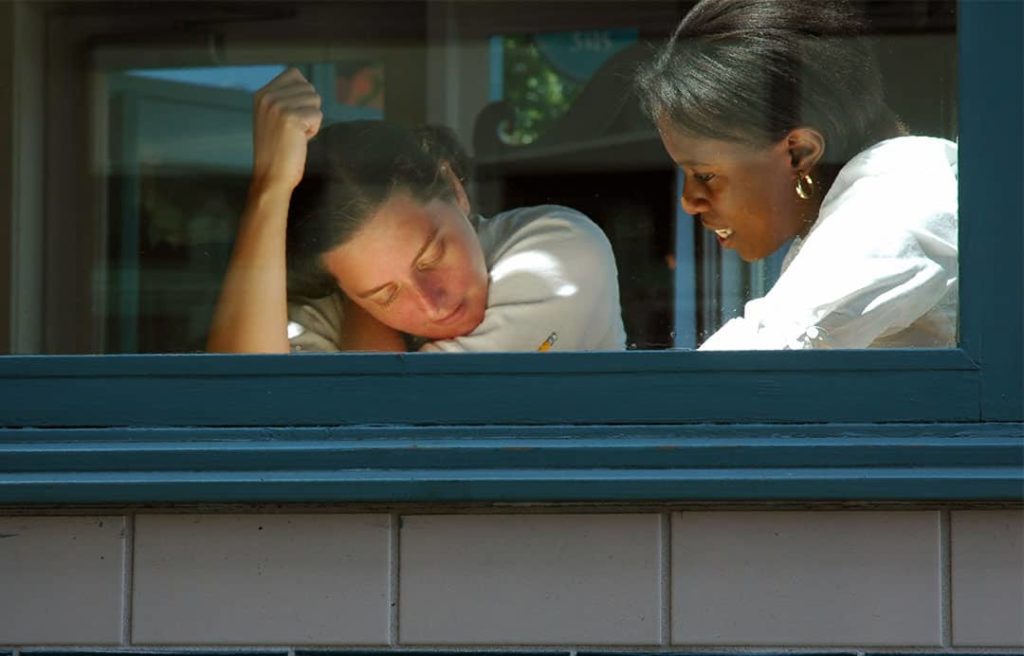Hospice Social Workers wear many hats. Read about some of the things they do.
March is the month of the Social Worker and what a great time to honor our Hospice Social Workers. These licensed professionals help patients and families as they navigate end-of-life challenges. But what do hospice social workers do? Read through this list of Hospice Social Worker Roles to find out some of the ways they can help you and your loved ones during this difficult time?

A Hospice Social Worker’s roles:
The Hospice Social Workers’ “agenda” is determined by the needs and goals of the family and patient. They don’t go in with a checklist for each patient, or each day they arrive. Their agenda is to provide each family and patient with the quality care they need most during each visit, whatever that may be.
- EMOTIONAL SUPPORT
First and foremost, Hospice Social Workers provide emotional support to both the family and the patient. They bring a sense of calmness to the situation and advocate for the patient when dealing with entities outside the hospice team. They have backgrounds in working with ethnic, cultural, and economic diversity.
- COORDINATE CARE
Secondly, they make sure you know about all available resources. Sometimes community support is available and Hospice Social Workers can help your family identify these local programs. Meals on Wheels, support groups, spiritual or religious programs, or Veteran Affairs are examples of what might be available. The Social worker can also help you navigate the coordination of care between entities. Assistance with paperwork for Medicare or insurance is also a common activity.
- BE YOUR EARS AND EYES

The next Hospice Social Worker’s role is to help you understand medical information. Do you ever feel overwhelmed in a crisis? Though doctors train to communicate with end-of-life families and patients, your comprehension and retention skills aren’t always at their best when you are distraught. Your Hospice Social Worker can help you understand what is happening with your loved one. They can remind you of what information is most important and make sense of what’s going on with your family member. Our Social Workers have been down this road many times.
- COUNSELING
Hospice Social Workers can also help families as they come to terms with the trauma of having a loved one entering the last stages of life. This time can be a harsh reality to bear. Having a counselor at the ready is such a comfort.
- FUNERAL ARRANGEMENTS
The fifth role on our list is funeral planning, which can be staggering. A Hospice Social Worker can get you started on this process and help guide you through it.
- ASSIST WITH ADVANCED DIRECTIVES
The next thing Hospice Social Workers do is to review and assist with Advanced Directives. This can take the form of paperwork for medical care directives, such as do not resuscitate (DNR). But they also advocate for patients’ end-of-life wishes. Sometimes this can mean special outings, love letters, or arranging for visits.
- BEREAVEMENT SUPPORT PROGRAM
Finally, Hospice Social Workers assist in the grieving process through additional counseling.
Hospice Social Workers are a special kind of person. Driven by a desire to help others, they spend time getting to know the patient and the family to give the best support possible.
Education Requirements for a Hospice Social Worker
A Social Worker for a Hospice facility has completed a master’s program in social work, which includes field experience. There are also state license requirements that they must fulfill as well as an exam.
Professionals who have received their Advanced Hospice and Palliative Social Worker Credentials have a master’s in social work, a state license, 20 or more hours of continuing education, and at least two years of paid, supervised work in hospice and palliative care.
